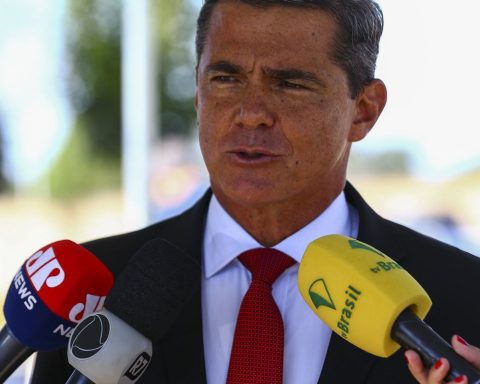The Minister of Finance, Fernando Haddad, discussed this Wednesday (13) with the Minister of Defense, José Múcio Monteiro, and the commanders of the Armed Forces the inclusion of mandatory military expenses in the package of spending cuts that the federal government intends present in the coming days. The meeting had already been anticipated by the minister two days ago.
“We spoke with the commanders of the Army, Navy and Air Force, we presented the arguments and ideas. And they made the technical teams available here at the National Treasury, which is leading, through the Treasury, the debate with them. Let’s see if we can do it, in a timely manner, include some more measures in the set of those already agreed with the ministries”, he told journalists at the entrance of the Ministry of Finance. Haddad also met this Wednesday with the president of the Chamber of Deputies, Arthur Lira, to discuss the package.
The package has not yet been detailed, but it was announced that it will consist of a proposed amendment to the Constitution (PEC) and a complementary bill (PLP), which need to be approved by the National Congress. There is still no official date for the presentation of proposals.
According to Haddad, the concept of the fiscal package is to standardize all Union expenses to the rules of the tax frameworkapproved last year. Regarding the meeting with Lira, the minister stated that the president of the Chamber knows the dynamics of public expenses, was the main guarantor of the framework in Parliament and will support the processing of new measures to contain the public budget.
“He [Lira] You know that, due to the dynamics of expenditure, if we are unable to place each item [despesa] Following the same logic, it is difficult to sustain the framework over time. I’m not talking about 2025 and 2026, the [orçamento de] 2025 is already in the National Congress and 2026 is one more year. I believe that this is not what the market, for example, society, is concerned about. I’m not worried about completing the mandate by complying with the framework. I am concerned with sustainable rules to ensure that it lasts for a long time and fulfills its objectives. The sign is that he [Lira] will make all the necessary effort [para aprovar]”, he reported.
Regarding the date for presenting the package, the Minister of Finance once again said that it depends on the president’s approval. He was unable to say whether it would happen this week, as planned. “Today we still have a [nova] meeting with the president, I don’t know if there is enough time [para apresentar essa semana]. As soon as he gives the authorization, we are ready to publicize the details of what is already being said here.”
Haddad ruled out the presentation, along with the tax package, of rules for reviewing tax subsidies for companies. The minister also noted that the Federal Revenue released, earlier, data indicating that 54,900 taxpayers who use tax credits resulting from tax benefits declared that they had a value of R$97.7 billion, between January and August of this year. “Today we released the subsidy data, even to contain initiatives that aim to increase subsidies for certain sectors. We made public, for the first time in history, the tax incentives given to each company, individually, and to the sectors, in aggregate” , criticized.
About the framework
The fiscal framework, approved last year, in place of the spending ceiling, began to limit expenditure growth to 70% of the variation in revenue over the previous 12 months. In other words, if in the 12-month period, from July to June, the government collects R$1 trillion, it will be able to spend R$700 billion. Within this percentage of 70%, there will be an upper limit and a floor, a band, for expenditure fluctuation, discounting the effect of inflation.
In times of greater economic growth, expenditure cannot grow more than 2.5% per year above inflation. In times of economic contraction, spending cannot grow more than 0.6% per year above inflation.

















